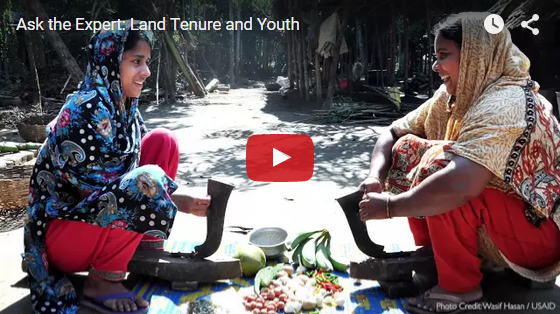From securing women’s inheritance rights, to enabling more responsible agricultural investment, to making cities more resilient to disasters—a growing body of evidence indicates that the systems that govern land and property rights have a significant impact on a wide range of critical development issues. Land tenure and property rights are particularly important to vulnerable groups such as women, indigenous peoples, refugees, internally displaced peoples, and the poor. But one vulnerable group has received less attention when it comes to land rights: youth.
Available evidence suggests that youth face significant and unique challenges when it comes to land and property. In many countries, rising pressures on land have left youth increasingly landless or holding only informal or secondary rights to land. This can lead to higher instances of conflict. In Ethiopia, for example, youth are more likely to experience land-related conflict than the general population. A lack of youth access to land may be a contributing factor to the civil wars in both Sierra Leone and Liberia.
Additionally, it should be noted that definitions of ‘youth’ vary widely across countries and can include individuals up to 35 years of age – in some countries the transition to adulthood requires marriage and children.
Recent research is building evidence of the impact of land tenure and property rights on youth. The International Fund for Agricultural Development (IFAD) has pointed out that landlessness among rural youth is one of the primary causes of migration to urban areas as young people seek out alternative sources of income. New research from USAID has begun to examine the impact of perceptions of land tenure security on youth and other vulnerable populations in Ethiopia, Guinea, Liberia and Zambia.
While more research is needed, initial findings indicate that policy makers and development practitioners engaged in land programming should take note of the unique challenges faced by youth. Policies and programs should take steps to promote youth land access and ensure that policies do not disadvantage youth with respect to land.


